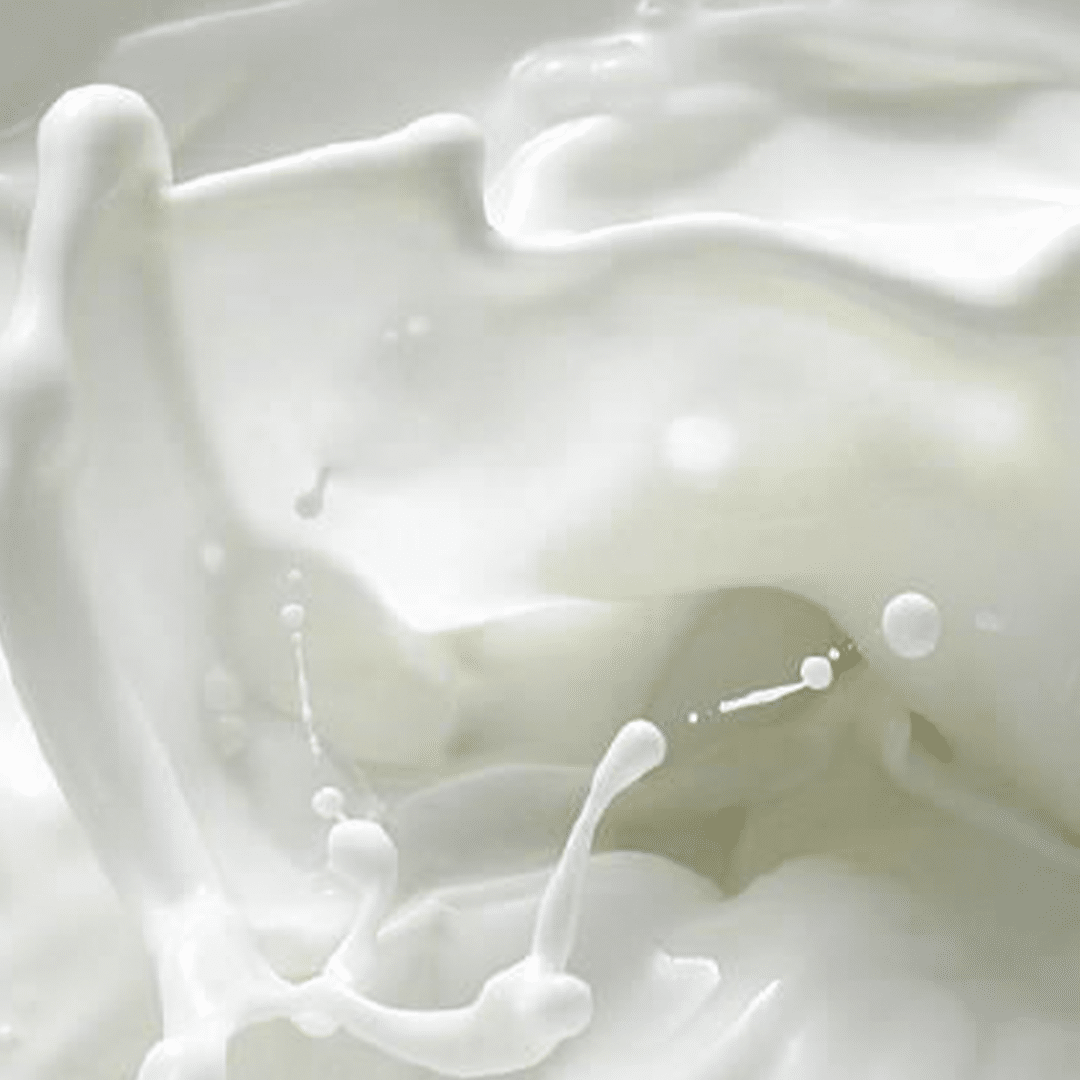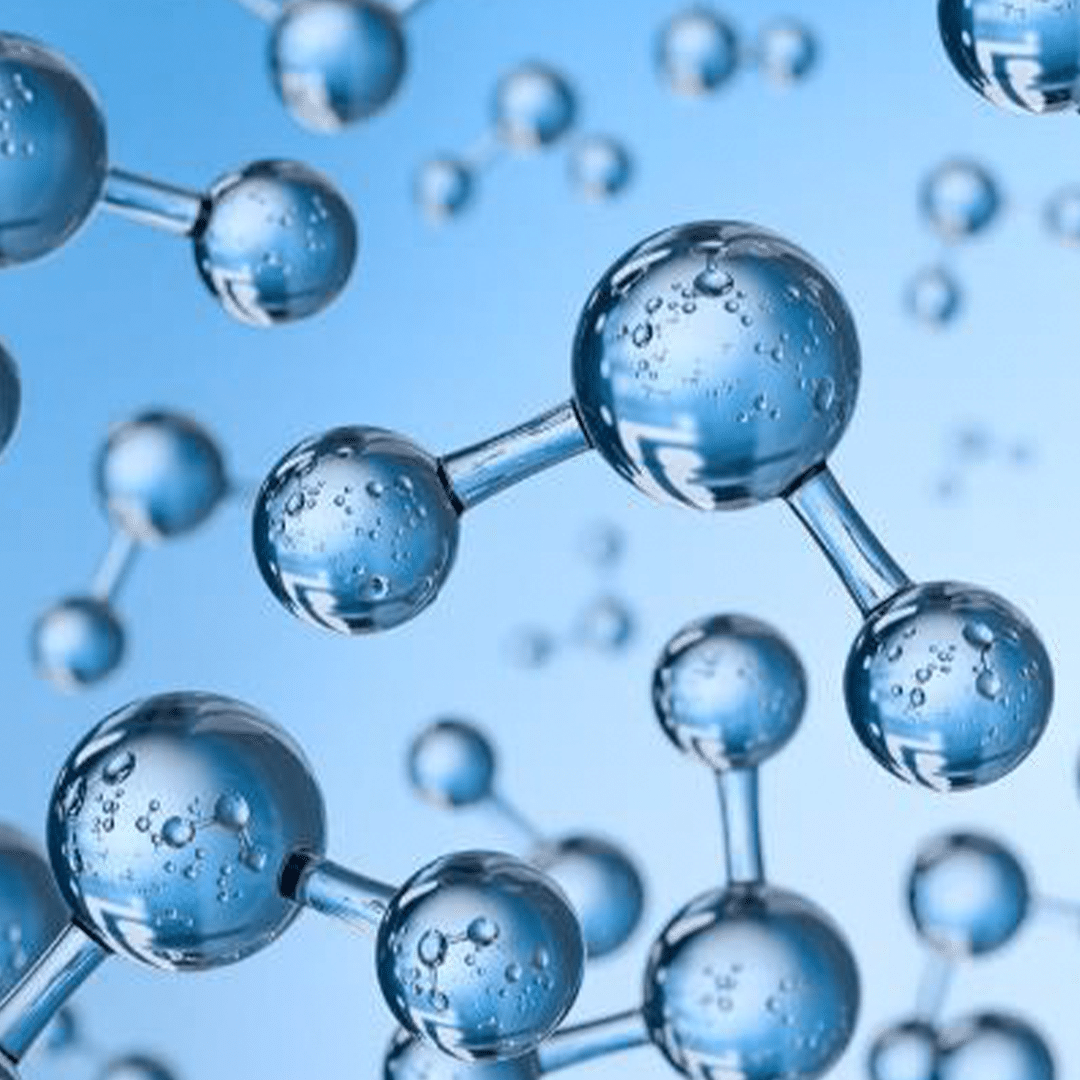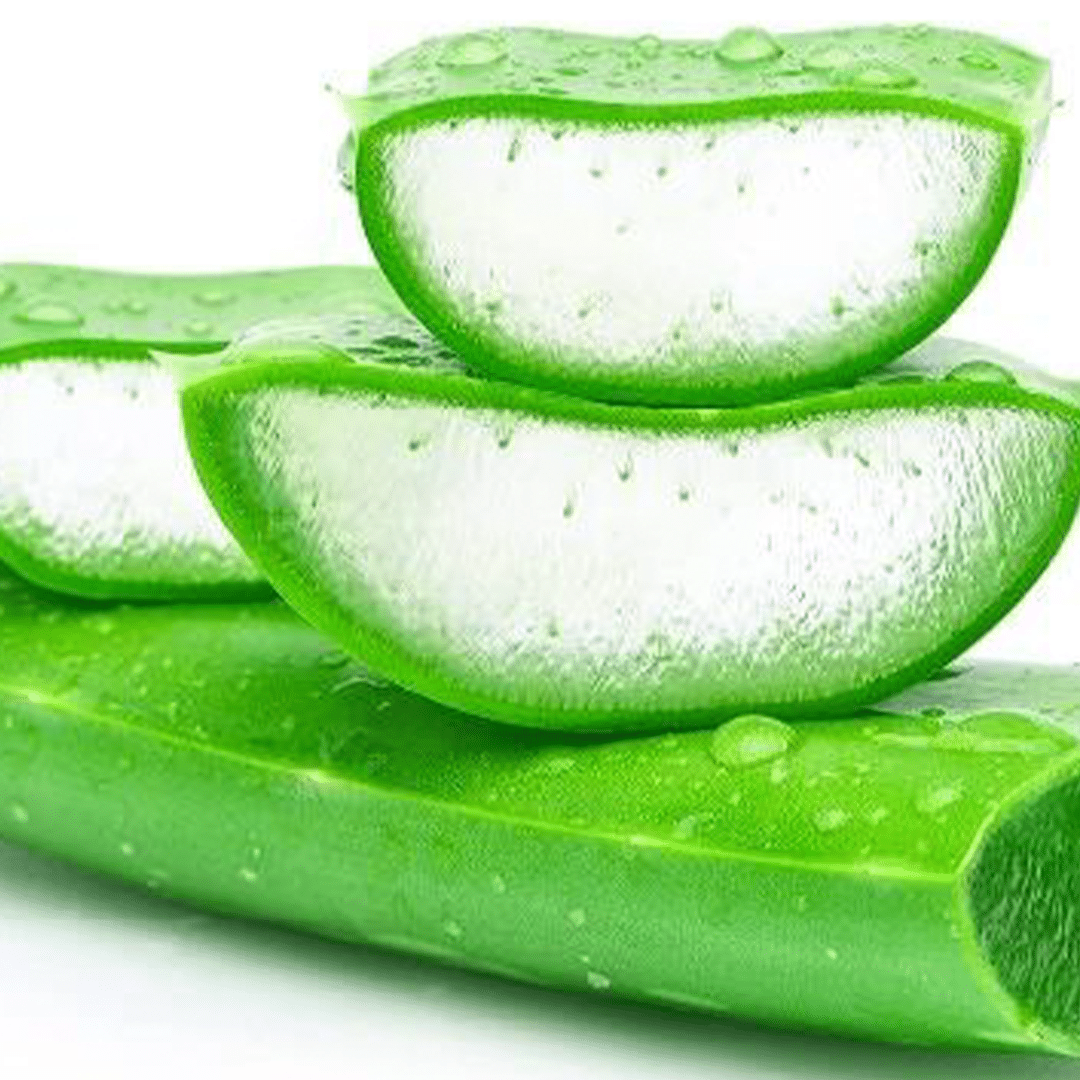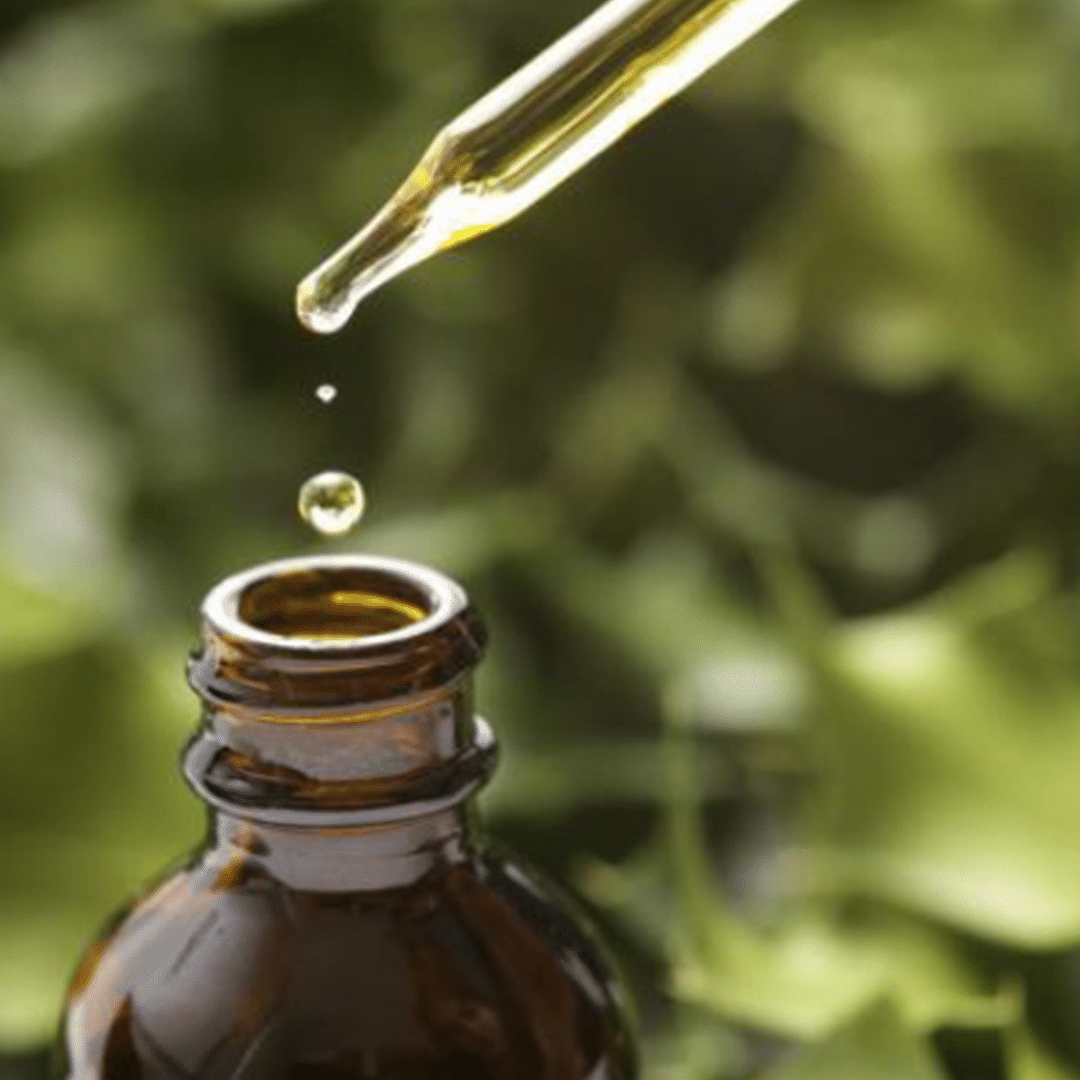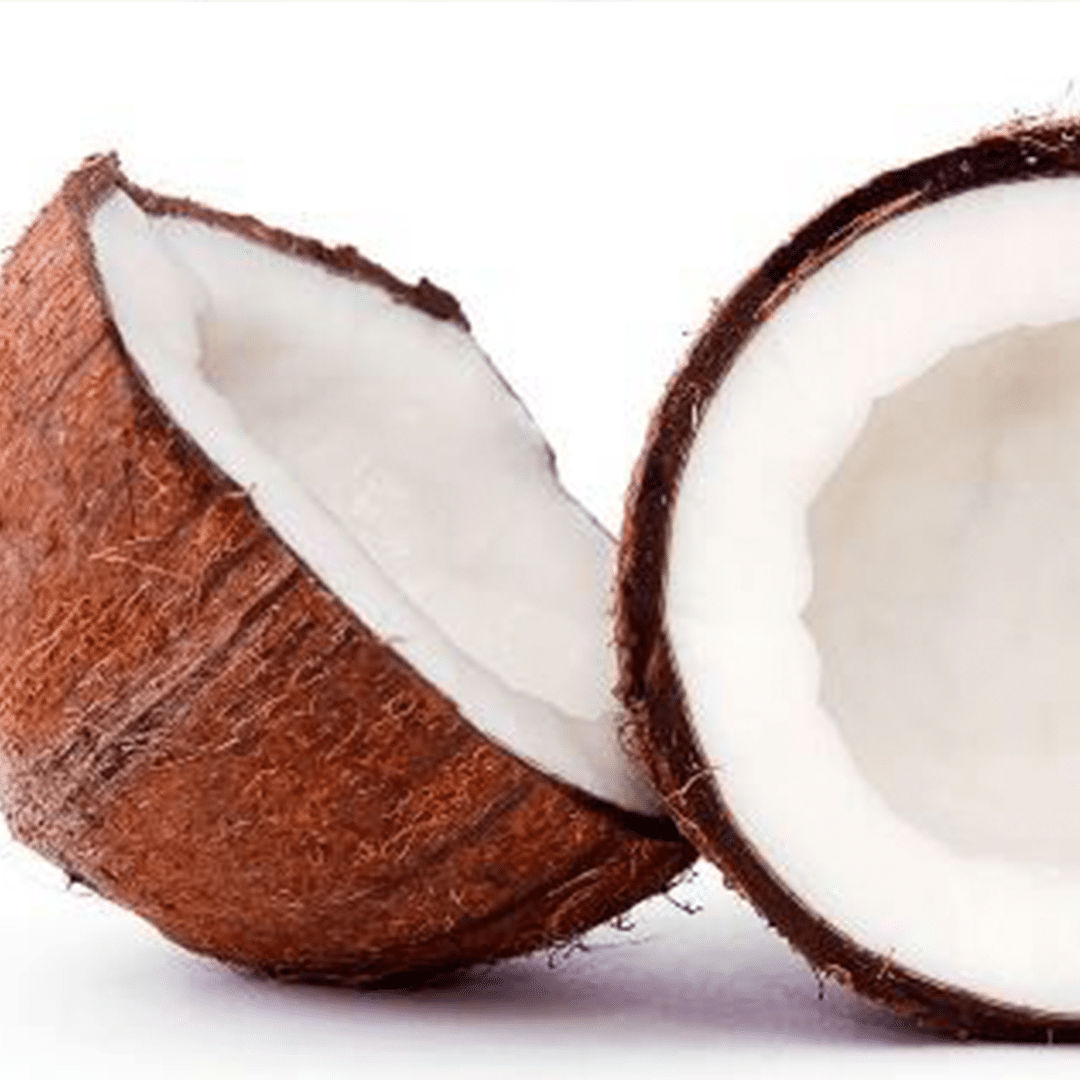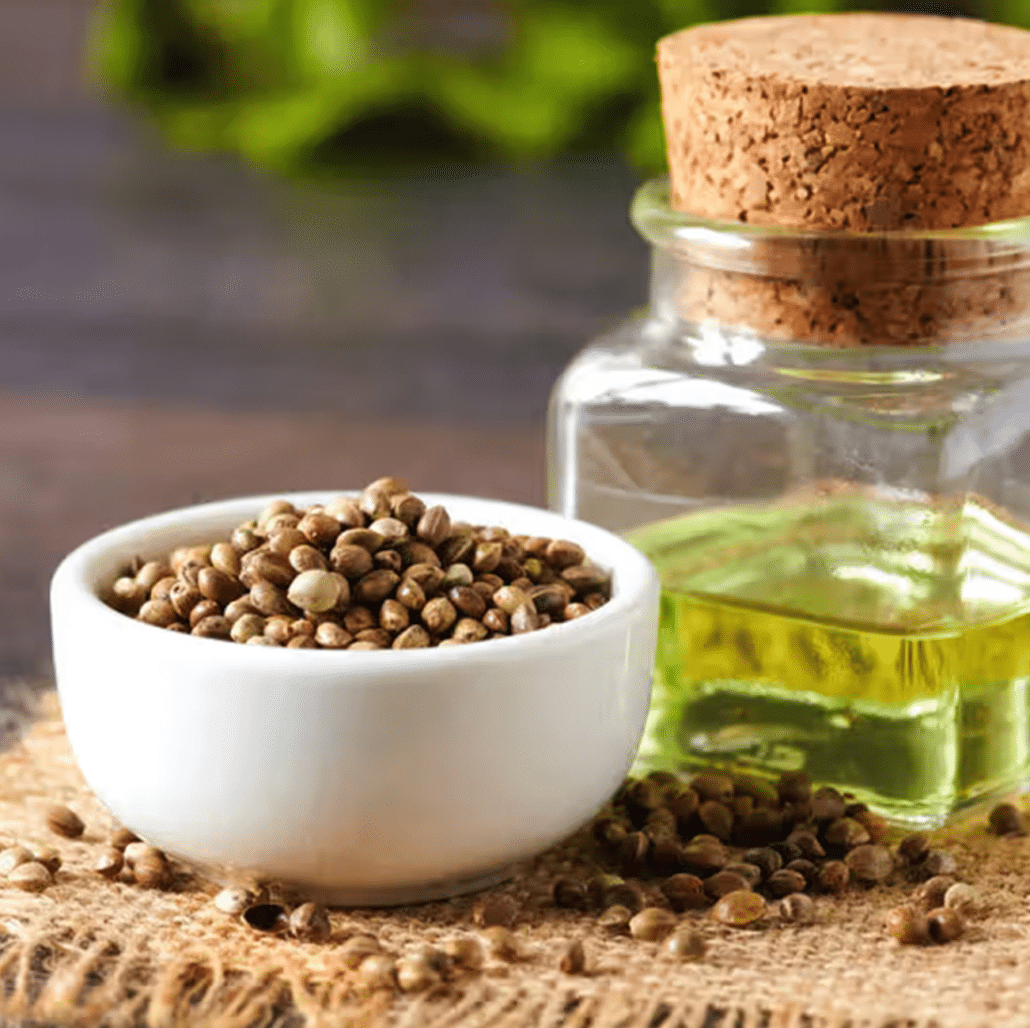Discover the exquisite ingredients of Alainn Skincare, where we passionately embrace nature’s finest treasures to craft our products. Our exclusive range is meticulously curated with purely natural and organic skincare ingredients, inspired by the pristine landscapes and abundant oceanic wonders of the Aran Islands. Our mission is to revitalize and safeguard your skin, providing it with the utmost nourishment and protection it deserves. “Discover the wonders of some of our thoughtfully selected ingredients by exploring the icons provided below, and unveil the marvellous benefits they offer.
Sugar Kelp Seaweed
Sugar Kelp Seaweed
- Hydration: Sugar kelp contains a high concentration of polysaccharides, which are natural sugars that can help retain moisture in the skin. This hydration effect can be beneficial for maintaining skin suppleness and preventing dryness.
- Antioxidant Properties: Sugar kelp is rich in antioxidants like vitamins C and E, as well as various polyphenols. Antioxidants help protect the skin from oxidative stress caused by free radicals, which can contribute to premature aging and skin damage.
- Anti-Inflammatory Effects: The presence of bioactive compounds in sugar kelp, such as fucoidans, has shown anti-inflammatory properties. This may help reduce redness, swelling, and irritation on the skin.
- Skin Soothing: Sugar kelp extracts have been used in skincare products for their soothing effects. They can help calm sensitive or irritated skin and provide relief from various skin conditions.
- Collagen Support: Some studies suggest that sugar kelp extracts may have the potential to support collagen production in the skin. Collagen is a crucial protein that helps maintain skin elasticity and firmness, promoting a youthful appearance.
- Mineral Enrichment: Sugar kelp is a rich source of essential minerals, including iodine, magnesium, calcium, and potassium. These minerals play a role in maintaining skin health and can contribute to a more radiant complexion.
- Anti-Aging Benefits: The combination of hydration, antioxidant protection, and collagen support can help combat the signs of aging, such as fine lines and wrinkles, leading to a more youthful-looking complexion.
Sea Oak Seaweed
Sea Oak Seaweed
1. Hydration: Sea Oak is rich in polysaccharides, which have the ability to attract and retain water. This can help in hydrating the skin and improving its moisture levels, resulting in a plumper and more youthful appearance.
2. Anti-aging: The seaweed contains antioxidants such as polyphenols and phlorotannins that can help neutralize free radicals. Free radicals are unstable molecules that can damage the skin and contribute to premature aging. By combating free radical damage, Sea Oak may help reduce the appearance of fine lines and wrinkles.
3. Skin-soothing properties: Sea Oak contains various compounds, including fucoidan, which possess anti-inflammatory properties. These compounds can help calm irritated skin, reduce redness, and alleviate conditions like eczema and dermatitis.
4. Skin Tone: Some studies suggest that sea oak extracts may have skin-balancing effects evening out skin tone. The seaweed contains minerals like iodine, which can improve blood circulation to the skin and contribute to a more radiant complexion.
5. Detoxification: Sea Oak has been used as a natural detoxifier. When applied topically, it may help remove impurities and toxins from the skin, promoting a healthier and clearer complexion.
6. Collagen support: Sea oak is a source of essential minerals and vitamins that are beneficial for collagen synthesis. Collagen is a protein responsible for maintaining the skin’s structure and elasticity, and supporting collagen production can lead to firmer, more supple skin.
- Hydration: Sugar kelp contains a high concentration of polysaccharides, which are natural sugars that can help retain moisture in the skin. This hydration effect can be beneficial for maintaining skin suppleness and preventing dryness.
- Antioxidant Properties: Sugar kelp is rich in antioxidants like vitamins C and E, as well as various polyphenols. Antioxidants help protect the skin from oxidative stress caused by free radicals, which can contribute to premature aging and skin damage.
- Anti-Inflammatory Effects: The presence of bioactive compounds in sugar kelp, such as fucoidans, has shown anti-inflammatory properties. This may help reduce redness, swelling, and irritation on the skin.
- Skin Soothing: Sugar kelp extracts have been used in skincare products for their soothing effects. They can help calm sensitive or irritated skin and provide relief from various skin conditions.
- Collagen Support: Some studies suggest that sugar kelp extracts may have the potential to support collagen production in the skin. Collagen is a crucial protein that helps maintain skin elasticity and firmness, promoting a youthful appearance.
- Mineral Enrichment: Sugar kelp is a rich source of essential minerals, including iodine, magnesium, calcium, and potassium. These minerals play a role in maintaining skin health and can contribute to a more radiant complexion.
- Anti-Aging Benefits: The combination of hydration, antioxidant protection, and collagen support can help combat the signs of aging, such as fine lines and wrinkles, leading to a more youthful-looking complexion.
Irish Sea Moss
Irish Sea Moss
1. Rich in Nutrients: Irish Sea Moss is packed with essential vitamins, minerals, and antioxidants, including vitamins A, C, E, and K, calcium, magnesium, potassium, and zinc. These nutrients can nourish the skin and support its overall health.
2. Hydration: The mucilage present in Irish Sea Moss makes it an excellent hydrating agent. It can help lock in moisture, keeping the skin moisturized and preventing dryness.
3. Soothing and Anti-Inflammatory: Irish Sea Moss contains bioactive compounds that have anti-inflammatory properties. This makes it potentially beneficial for soothing irritated or inflamed skin, helping to reduce redness and discomfort.
4. Skin Conditioning: The nutrients in Irish Sea Moss can promote skin conditioning, leaving the skin feeling soft, smooth, and supple.
5. Collagen Support: Some studies suggest that certain compounds in Irish Sea Moss may help support collagen production, which is vital for maintaining skin elasticity and preventing signs of aging like wrinkles and fine lines.
6. Antioxidant Protection: The antioxidants present in Irish Sea Moss can help protect the skin from oxidative stress caused by free radicals, which can contribute to premature aging and skin damage.
7. Potential Skin Brightening: Some people believe that Irish Sea Moss can help even out skin tone and promote a brighter complexion.
Goats Milk
Goats Milk
Goats Milk has been used for centuries as a natural remedy for skin care due to its numerous beneficial properties.
1. Moisturizing: Goat’s milk is rich in natural fats and proteins that help moisturize and nourish the skin. It is especially beneficial for people with dry or sensitive skin as it helps to maintain the skin’s moisture barrier, preventing moisture loss and keeping the skin hydrated.
2. Soothing and calming: The lactic acid in goat’s milk acts as a natural exfoliant, helping to remove dead skin cells and promote a smoother complexion. It also contains anti-inflammatory properties that can soothe and calm irritated or inflamed skin.
3. Rich in vitamins and minerals: Goat’s milk is packed with essential vitamins like A, B2, B6, B12, and minerals like selenium and zinc, all of which contribute to healthy skin. These nutrients play a vital role in maintaining skin health, supporting collagen production, and protecting the skin from damage caused by free radicals.
4. Anti-aging properties: The alpha-hydroxy acids (AHAs) present in goat’s milk help to reduce the appearance of fine lines and wrinkles. AHAs encourage cell turnover and promote a more youthful and radiant complexion.
5. Acne-fighting properties: Goat’s milk has antibacterial properties that can help combat acne-causing bacteria, making it beneficial for those with acne-prone skin.
6. Skin Tone: The lactic acid in goat’s milk can help even out skin tone, reducing the appearance of dark spots and hyperpigmentation.
7. Natural emollient: Goat’s milk contains triglycerides and fatty acids that act as natural emollients, forming a protective layer on the skin and sealing in moisture.
8. pH balance: Goat’s milk has a pH level similar to that of human skin, which helps maintain the skin’s natural pH balance. This is important as an imbalanced pH can lead to various skin issues.
Jojoba Oil
Jojoba Oil
Jojoba oil is a natural oil extracted from the seeds of the jojoba plant
1. Moisturizing: Jojoba oil is a highly effective moisturizer as it closely resembles the skin’s natural sebum. It forms a protective barrier on the skin, preventing moisture loss and keeping the skin hydrated and supple.
2. Non-comedogenic: Unlike some other oils, jojoba oil is non-comedogenic, which means it won’t clog pores. This makes it suitable for all skin types, including acne-prone and sensitive skin.
3. Balances sebum production: Jojoba oil helps regulate the skin’s oil production, making it beneficial for both dry and oily skin types. It can reduce excess oiliness and control shine while keeping the skin adequately moisturized.
4. Soothes skin inflammation: The anti-inflammatory properties of jojoba oil can help calm and soothe irritated or inflamed skin conditions, such as eczema, psoriasis, and rosacea.
5. Antioxidant properties: Jojoba oil contains natural antioxidants like vitamin E, which can help protect the skin from free radical damage caused by environmental stressors.
6. Promotes collagen synthesis: The presence of certain vitamins and minerals in jojoba oil, such as vitamin E, B-complex vitamins, zinc, and copper, can promote collagen production, which is essential for maintaining skin elasticity and reducing the appearance of wrinkles and fine lines.
7. Reduces the appearance of scars: Regular application of jojoba oil to scars or stretch marks can help fade their appearance over time due to its moisturizing and skin regenerative properties.
8. Anti-aging benefits: With its ability to nourish and protect the skin, jojoba oil can be beneficial in reducing the signs of premature aging, such as wrinkles and age spots.
9. Sunburn relief: The soothing properties of jojoba oil can provide relief to sunburned skin and aid in the healing process
Hyaluronic (HA)
Hyaluronic (HA)
Hyaluronic acid (HA) is a naturally occurring substance found in our skin and connective tissues. It is a glycosaminoglycan, a type of molecule that helps maintain the skin’s moisture content and structure
1. Hydration: Hyaluronic acid is a humectant, which means it attracts and retains moisture. It can hold up to 1000 times its weight in water, making it highly effective at keeping the skin hydrated. This helps to improve the skin’s texture and suppleness, reducing the appearance of fine lines and wrinkles.
2. Anti-aging: As we age, our skin’s natural hyaluronic acid levels decrease, leading to a loss of moisture and elasticity. Using skincare products with hyaluronic acid can help replenish these levels, reducing the visible signs of aging and promoting a more youthful appearance.
3. Plumping and firming: When the skin is well-hydrated, it appears plumper and firmer. Hyaluronic acid helps to restore volume to the skin, making it look smoother and more toned.
4. Soothing and calming: Hyaluronic acid has anti-inflammatory properties that can help soothe and calm irritated skin. This makes it suitable for sensitive skin types or those dealing with skin conditions like redness or eczema.
5. Enhanced skin barrier: By keeping the skin moisturized, hyaluronic acid strengthens the skin barrier, which is essential for protecting the skin from external aggressors and maintaining overall skin health.
6. Lightweight and non-greasy: Hyaluronic acid is a lightweight ingredient that absorbs quickly into the skin, making it suitable for all skin types, including oily or acne-prone skin.
7. Improved makeup application: When the skin is adequately hydrated with hyaluronic acid, makeup products tend to apply more smoothly and evenly, creating a more flawless finish.
Aloe Vera
Aloe Vera
Aloe vera is a popular plant that has been used for centuries for its various skincare benefits. It contains a gel-like substance within its leaves that is rich in vitamins, minerals, enzymes, amino acids, and other bioactive compounds
1. Moisturizing: Aloe vera is an excellent natural moisturizer. Its gel penetrates the skin quickly without leaving a greasy residue, providing hydration to the skin, making it ideal for dry or dehydrated skin.
2. Soothing and Calming: Aloe vera has anti-inflammatory properties, which make it effective for soothing and calming irritated or sunburned skin. It can reduce redness and alleviate discomfort associated with various skin conditions.
3. Wound Healing: Aloe vera gel can accelerate the healing process of wounds, cuts, and burns. It contains compounds that promote cell regeneration and tissue repair, helping to speed up the healing of minor skin injuries.
4. Acne Treatment: The anti-inflammatory and antimicrobial properties of aloe vera make it beneficial for treating acne. It can help reduce redness and inflammation associated with acne and also inhibit the growth of acne-causing bacteria.
5. Anti-aging Effects: Aloe vera is rich in antioxidants that combat free radicals, which contribute to skin aging. Regular use of aloe vera-based products can help reduce the appearance of fine lines, wrinkles, and age spots, promoting a more youthful complexion.
6. Skin Tone: Aloe vera can help even out skin tone and reduce the appearance of hyperpigmentation. It contains compounds that inhibit the production of melanin, the pigment responsible for dark spots and uneven skin tone.
7. Pore Minimizing: Aloe vera has astringent properties that can help tighten the skin and minimize the appearance of pores, giving the skin a smoother and more refined appearance.
8. Skin Irritation Relief: Aloe vera can be used to alleviate itching and discomfort caused by insect bites, rashes, and allergic reactions due to its anti-inflammatory and cooling effects.
9. Non-comedogenic: Aloe vera is non-comedogenic, meaning it doesn’t clog pores. This makes it suitable for all skin types, including sensitive and acne-prone skin.
Vitamin E
Vitamin E
Vitamin E is a powerful antioxidant that plays a vital role in maintaining healthy skin and protecting it from damage caused by free radicals, which are unstable molecules that can contribute to premature aging and other skin issues
1. Moisturization: Vitamin E is an excellent moisturizer that helps to keep the skin hydrated and prevents dryness. It strengthens the skin’s natural barrier, reducing water loss and maintaining moisture levels.
2. Anti-aging: As an antioxidant, Vitamin E helps to neutralize free radicals, which can lead to wrinkles, fine lines, and loss of skin elasticity. By combating oxidative stress, it can minimize the signs of aging and keep the skin looking youthful.
3. Sun protection: While Vitamin E cannot replace sunscreen, it can enhance the effects of sunscreens and provide some degree of protection against UV damage. It helps to reduce the harmful effects of sun exposure on the skin.
4. Scar reduction: Vitamin E may aid in reducing the appearance of scars and promoting wound healing. It is often used topically on scars to help improve their texture and fade their appearance over time.
5. Anti-inflammatory properties: Vitamin E has anti-inflammatory properties, which can help soothe irritated and inflamed skin. It may be beneficial for those with conditions like eczema, psoriasis, and dermatitis.
6. Enhanced skin barrier: Vitamin E supports the skin’s protective barrier, keeping it strong and resilient. This can help shield the skin from environmental stressors and pollutants.
7. Even skin tone: Vitamin E may contribute to a more even skin tone by reducing the appearance of hyperpigmentation and dark spots.
8. Acne control: Due to its anti-inflammatory nature, Vitamin E may help in managing acne by reducing redness and inflammation associated with breakouts.
Lavender Essential Oil
Lavender Essential Oil
Lavender essential oil is renowned for its soothing aroma and has been used for centuries in various cultures for its potential health and skin benefits
1. Antioxidant Properties: Lavender oil contains antioxidants that help protect the skin from free radical damage, which can lead to premature aging and skin damage.
2. Anti-inflammatory: The oil has anti-inflammatory properties that may reduce redness, swelling, and irritation on the skin. It can be beneficial for individuals with inflammatory skin conditions like acne, eczema, or psoriasis.
3. Wound Healing: Lavender oil has wound-healing properties and may promote the formation of new tissues, aiding in the healing process of cuts, burns, and other skin injuries.
4. Calming and Relaxing: Stress and anxiety can take a toll on the skin, leading to breakouts and other issues. Lavender oil’s relaxing aroma can help reduce stress and promote better sleep, indirectly benefiting the skin.
5. Antimicrobial Effects: Lavender oil has natural antimicrobial properties that can help combat certain bacteria and fungi, potentially reducing the risk of skin infections.
6. Moisturizing: The oil can help retain moisture in the skin, making it useful for dry or chapped skin.
7. Toning and Balancing: Lavender oil may help balance the skin’s natural oil production and tone the skin, making it suitable for various skin types, including oily and combination skin.
8. Anti-aging Potential: Due to its antioxidant properties and ability to promote skin cell renewal, lavender oil might help reduce the appearance of wrinkles and fine lines.
Coconut Oil
Coconut Oil
For centuries, coconut oil has been employed to promote both beauty and well-being. Alainn skincare utilizes a natural and organic variant of coconut oil, which sets it apart from regular versions. One remarkable distinction is that it is non-comedogenic, meaning it won’t clog your pores.
1. Moisturizing: Coconut oil is rich in fatty acids, particularly lauric acid, which helps to retain moisture in the skin. It can act as an effective emollient, softening and hydrating the skin, making it especially useful for individuals with dry or dehydrated skin.
2. Antimicrobial properties: Coconut oil contains medium-chain fatty acids, such as lauric acid and caprylic acid, which have antimicrobial properties. These can help fight against bacteria, viruses, and fungi on the skin, potentially reducing the risk of breakouts.
3. Anti-inflammatory effects: Coconut oil contains antioxidants, such as vitamin E, which can help soothe and reduce inflammation in the skin. This may be beneficial for individuals that suffer with inflammation
4. Skin barrier repair: The fatty acids in coconut oil can assist in strengthening the skin’s natural barrier function, which can protect against environmental damage and maintain a healthy complexion.
5. Non-comedogenic properties: The type of coconut oil used by Alainn Skincare type has a lightweight and non-greasy texture, making it less likely to clog pores and cause breakouts. It’s considered non-comedogenic, which means it won’t contribute to acne or blemishes.
Rosehip Oil
Rosehip Oil
Rosehip oil is a natural & organic oil derived from the seeds of wild rose bushes, particularly Rosa canina.
1. Moisturization: Rosehip oil is rich in essential fatty acids, such as linoleic acid and oleic acid, which help to lock in moisture and keep the skin hydrated. It’s an excellent option for those with dry or dehydrated skin.
2. Anti-aging properties: The oil is a source of antioxidants like vitamins A, C, and E, which can help protect the skin from oxidative stress caused by free radicals. These antioxidants can promote collagen production, improve skin elasticity, and reduce the appearance of fine lines and wrinkles.
3. Skin Regeneration: Rosehip oil contains compounds that may aid in skin regeneration and repair, making it beneficial for reducing the appearance of blemishes and hyperpigmentation.
4. Even skin tone: Due to its high vitamin C content, rosehip oil can help brighten the skin and even out skin tone, giving it a more radiant appearance.
5. Anti-inflammatory properties: The oil’s anti-inflammatory properties can be soothing to sensitive or irritated skin, helping to calm redness and reduce inflammation.
6. Acne management: Rosehip oil is non-comedogenic, meaning it won’t clog pores, making it suitable for acne-prone skin. Its anti-inflammatory properties may also help reduce redness and irritation associated with acne.
7. Sun damage protection: The antioxidants in rosehip oil can help combat damage caused by UV rays and environmental pollutants, potentially reducing the effects of sun damage on the skin.
8. Natural exfoliant: Rosehip oil contains natural forms of retinoic acid (a derivative of vitamin A), which can gently exfoliate the skin, promoting a smoother complexion.
Grapefruit Essential Oil
Grapefruit Essential Oil
Grapefruit essential oil is derived from the peel of grapefruits and is known for its refreshing and uplifting aroma
1. Antioxidant-rich: Grapefruit essential oil contains antioxidants that help protect the skin from free radical damage caused by environmental stressors, such as pollution and UV rays. This can lead to a reduction in signs of premature aging, like fine lines and wrinkles.
2. Astringent properties: The astringent nature of grapefruit oil can help tighten and tone the skin, making it beneficial for those with oily or acne-prone skin. It may assist in reducing excess oil production and minimizing the appearance of pores.
3. Antimicrobial effects: Grapefruit essential oil possesses natural antimicrobial properties that can help combat bacteria on the skin’s surface, potentially aiding in the prevention of acne and other skin infections.
4. Skin Tone: The oil contains natural compounds that may contribute to skin evening out skin tone. It might help fade dark spots and promote a more radiant complexion.
5. Circulation stimulation: Grapefruit oil has stimulating effects that can boost blood circulation when applied topically. Improved blood flow can enhance skin health and promote a healthy glow.
Calendula Oil
Calendula Oil
Calendula oil, derived from the marigold flower (Calendula officinalis), has been used for centuries in traditional medicine and skincare due to its numerous beneficial properties.
1. Anti-inflammatory properties: Calendula oil contains compounds like flavonoids and triterpenoids that have anti-inflammatory effects. It can help soothe and calm irritated or inflamed skin, making it beneficial for conditions like eczema, dermatitis, and sunburn.
2. Regeneration: It stimulates tissue regeneration and collagen production, which can accelerate the healing process of the skin.
3. Antioxidant effects: Calendula oil is rich in antioxidants, including carotenoids and vitamin E. These antioxidants help protect the skin from free radical damage caused by environmental pollutants and UV radiation, thus supporting the skin’s overall health and youthfulness.
4. Moisturizing and nourishing: The oil is emollient and can help retain moisture in the skin, making it softer and smoother. Regular application can keep the skin hydrated and reduce dryness and flakiness.
5. Anti-aging properties: Due to its antioxidant content, calendula oil can also help combat the signs of aging, such as fine lines and wrinkles. It may promote skin elasticity and firmness, giving a more youthful appearance.
6. Acne treatment: Calendula oil’s anti-inflammatory and antimicrobial properties may help in managing mild to moderate acne. It can reduce redness, swelling, and the appearance of blemishes.
7. Gentle on sensitive skin: Calendula oil is generally well-tolerated and gentle, making it suitable for sensitive skin types. It is often used in baby products due to its mild nature.
8. Skin Tone: Some users report that regular use of calendula oil can help improve the skin’s overall tone and radiance, giving a brighter complexion
Hemp Seed Oil
Hemp Seed Oil
1. Moisturizing
Hydration: Hemp seed oil is an excellent moisturizer for the skin, as it can help to lock in moisture without clogging pores.
Skin Barrier: It strengthens the skin barrier, helping to retain moisture and protect against environmental stressors.
2. Anti-inflammatory Properties
Soothing: It has anti-inflammatory properties that can help reduce redness and irritation.
Acne Reduction: These properties make it beneficial for acne-prone skin, as it can help to calm inflammation and reduce breakouts.
3. Rich in Essential Fatty Acids
Omega-3 and Omega-6: Hemp seed oil contains a perfect ratio of omega-6 to omega-3 fatty acids, which are crucial for maintaining healthy skin.
Gamma-Linolenic Acid (GLA): The GLA in hemp seed oil has powerful anti-inflammatory effects and can support skin health.
4. Anti-aging
Antioxidants: It is rich in antioxidants, including vitamins A, C, and E, which help to protect the skin from free radical damage and reduce the appearance of fine lines and wrinkles.
Skin Regeneration: The oil promotes skin regeneration and elasticity, which can help to keep the skin looking youthful and firm.
5. Balancing Oily Skin
Sebum Production: Hemp seed oil can help regulate the skin’s oil production, making it beneficial for both dry and oily skin types.
6. Healing Properties
Skin Conditions: It can aid in healing skin conditions such as eczema, psoriasis, and dermatitis due to its anti-inflammatory and moisturizing properties.
Minor Injuries: Hemp seed oil can also help in healing minor cuts and abrasions.
7. Non-comedogenic
Pore-Friendly: It has a comedogenic rating of 0, meaning it won’t clog pores, making it suitable for all skin types, including sensitive and acne-prone skin.
8. Nutrient-Rich
Vitamins and Minerals: Besides essential fatty acids, hemp seed oil is also packed with vitamins and minerals that are beneficial for skin health, including vitamin E, magnesium, zinc, and iron.




